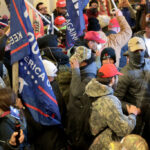To print this article, all you need is to be registered or login on Mondaq.com.
On August 2, 2023, the National Labor Relations Board issued a
pivotal decision affecting workplace conduct rules that impacts
essentially all employers. In Stericycle, the NLRB adopts
a new standard for evaluating the legality of such rules. According
to the Board, rules that have a reasonable tendency to chill
employees from exercising their rights to engage in concerted
activities are presumptively unlawful.
The Board’s ruling calls into question all existing work
rules, and employers should immediately review their employee
handbooks and policies to determine whether they comply with the
new standard.
WHAT HAPPENED?
In the 2017 Boeing decision (later revised as LA
Specialty Produce Co. in 2019), the Board adopted a
classification system to determine if work rules violate
employees’ rights under Section 7 of the National Labor
Relations Act, which include the “right to self-organization,
to form, join, or assist labor organizations, to bargain
collectively. . . , and to engage in other concerted activities for
the purpose of collective bargaining or other mutual aid or
protection.” Under the Boeing standard, work rules
were classified as always lawful, sometimes lawful, or always
unlawful.
In this week’s Stericycle decision, the Board
considered whether work rules governing personal conduct, conflicts
of interest, and confidentiality of harassment complaints violate
employees’ rights after an administrative law judge found such
rules to be unlawful under the Boeing standard.
The Board found that the standard allowed employers to adopt
overbroad work rules that chill employees’ rights. Overruling
that standard, the Board held that work rules should be considered
on a case-by-case basis.
Under this new standard, rules that have a reasonable tendency
to chill employees from exercising their Section 7 rights are
presumptively unlawful. The NLRB will interpret the rule from the
perspective of the “reasonable employee who is economically
dependent on her employer and thus inclined to interpret an
ambiguous rule to prohibit protected activity she would otherwise
engage in.” Employers may rebut the presumption only by
proving that the rule advances a legitimate and substantial
business interest and that the employer is unable to advance that
interest with a more narrowly tailored rule. If the employer meets
this burden, the rule will be found lawful to maintain.
The new standard applies retroactively, so existing work rules
will be evaluated under the Stericycle standard.
Rather than determining whether the work rules at issue are
lawful, the Board sent the case back to the administrative law
judge to allow the parties to present argument and evidence under
the new standard.
WHAT EMPLOYERS SHOULD DO NOW
Although the Board did not explain how employers should revise
their rules to comply with the new standard, we anticipate the
following types of rules could be found unlawful:
- Personal conduct rules, such as those requiring employees to
“behave in a professional manner” or refrain from making
false statements about the employer; - “No camera” and “no recording”
policies; - Anti-loitering rules that deny off-duty employees access to the
workplace; and, - Policies that mandate employees keep their workplace complaints
confidential and/or require them to only discuss such complaints
with HR.
Employers should work with outside legal counsel to review their
existing employee handbooks and policies to ensure compliance with
the new standard.
Originally published August 2023
The content of this article is intended to provide a general
guide to the subject matter. Specialist advice should be sought
about your specific circumstances.
POPULAR ARTICLES ON: Employment and HR from United States
#Time #Review #Employee #Handbooks #Policies #Employee #Rights #Labour #Relations










